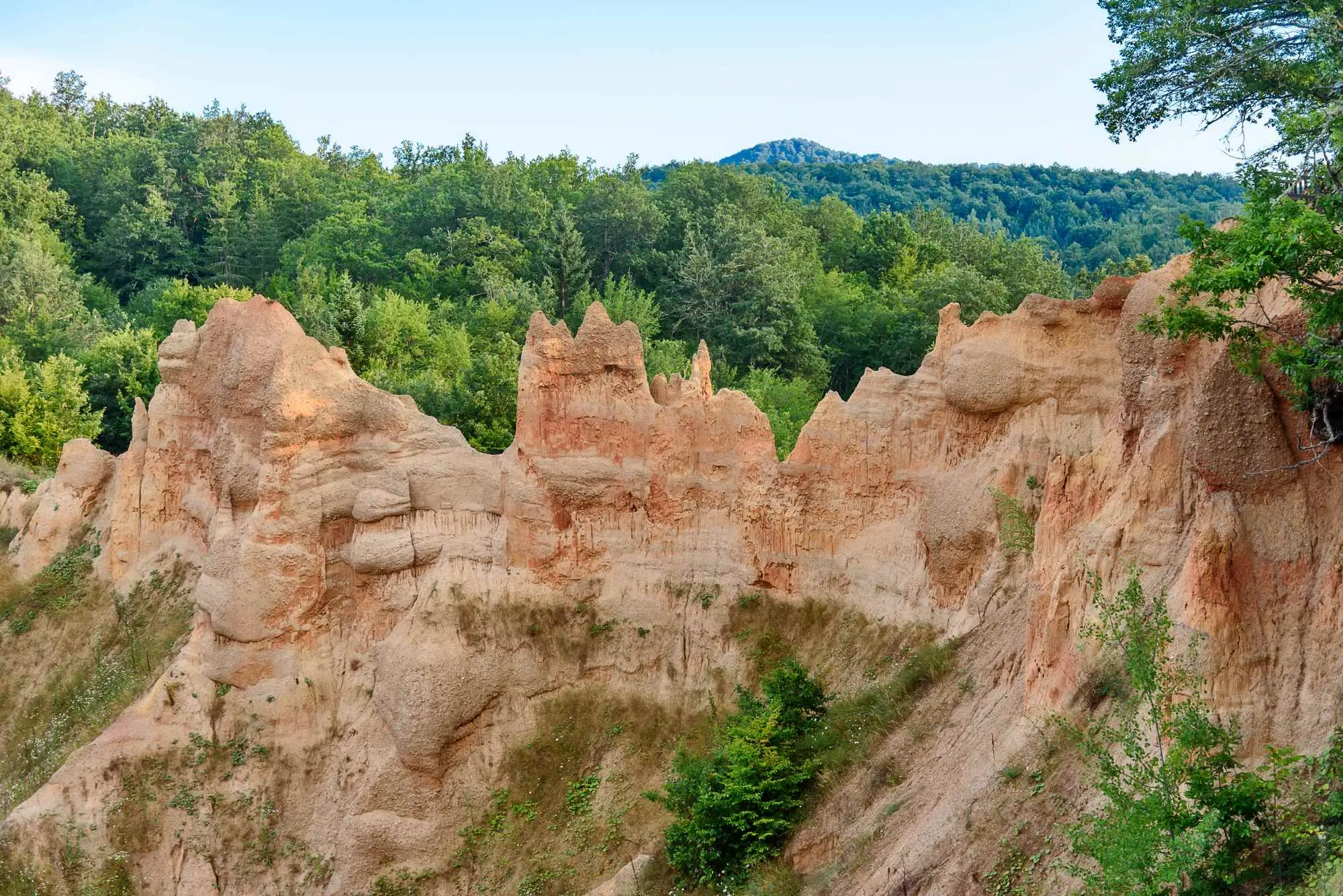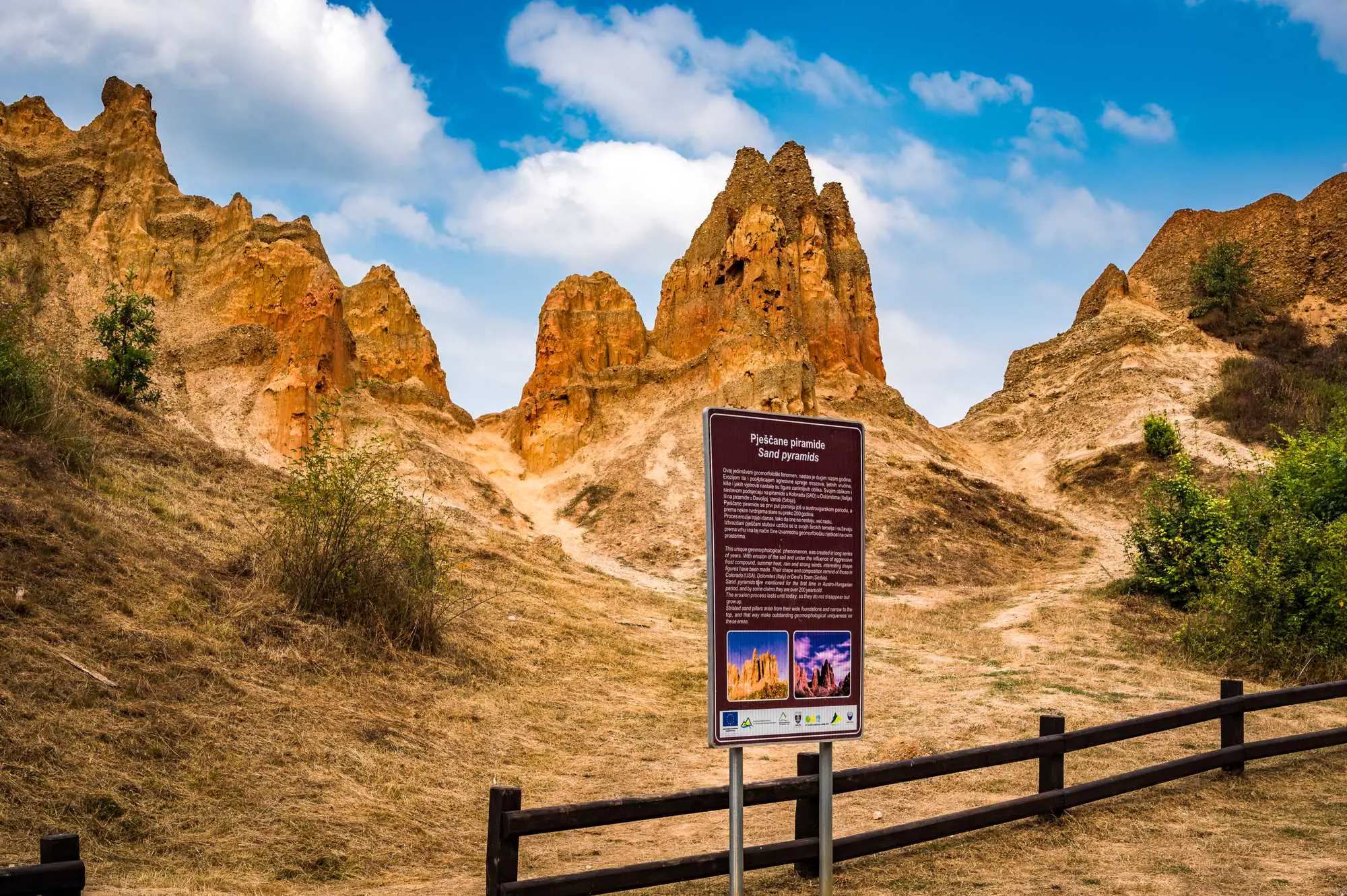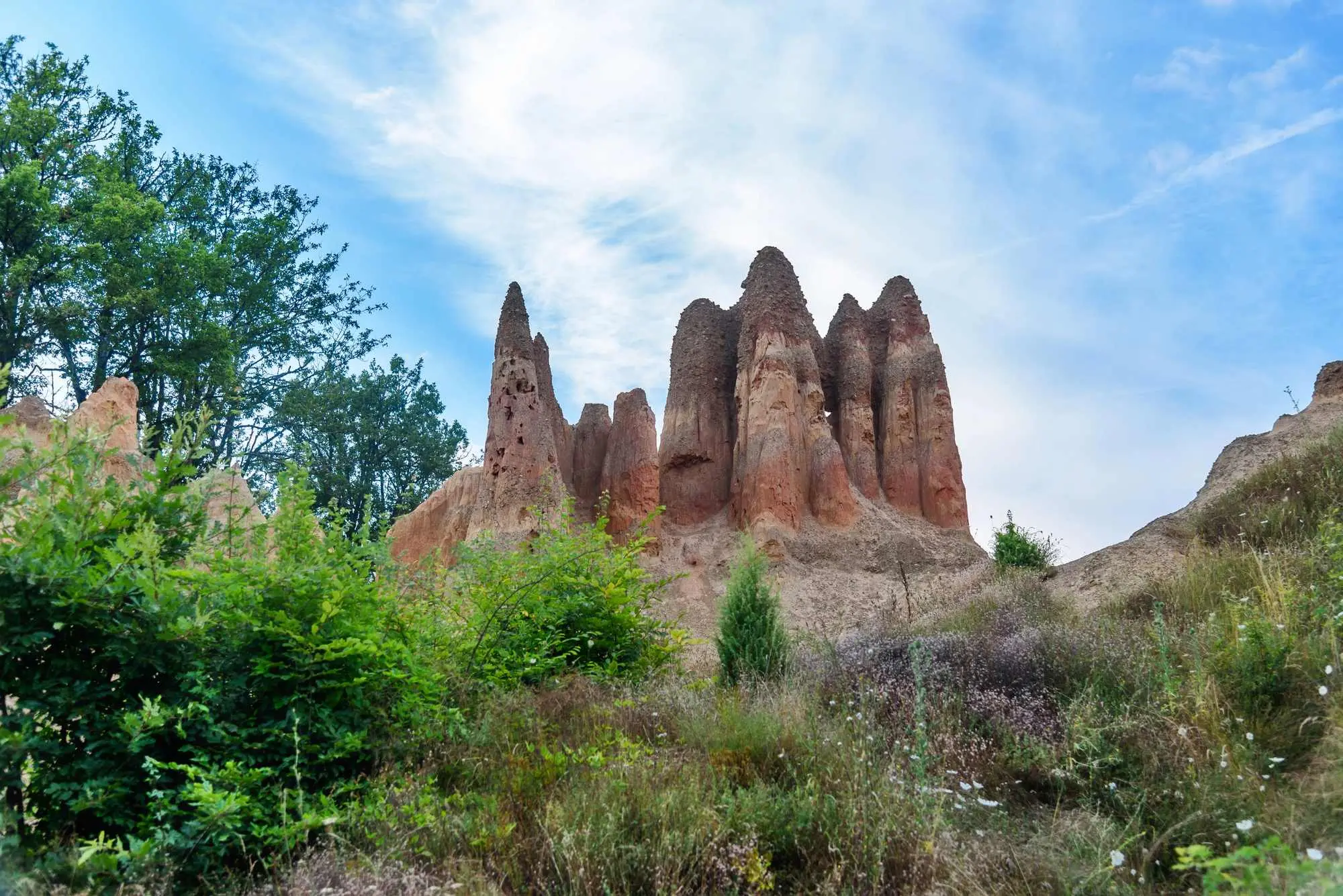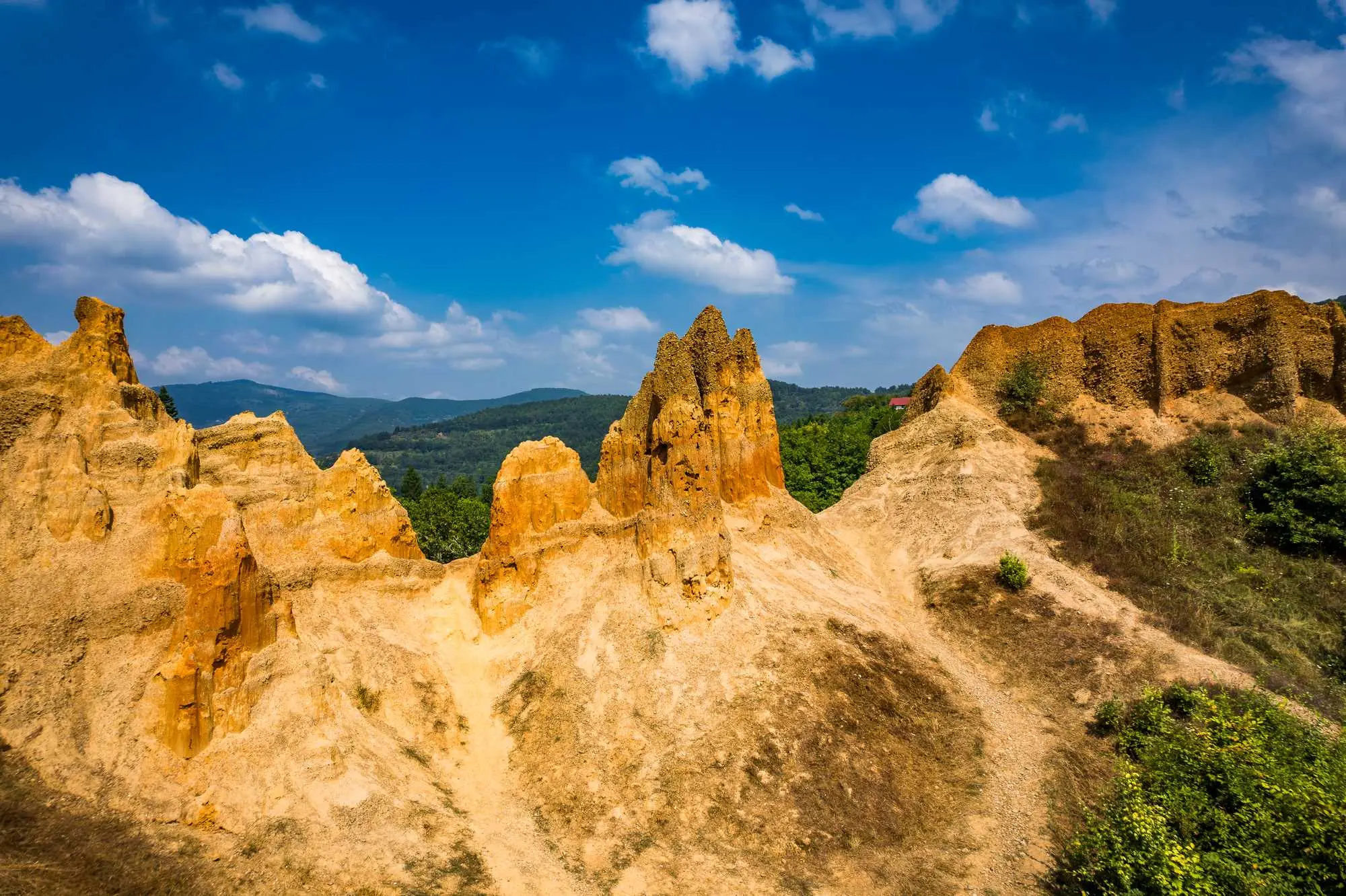The sand pyramids near Foča delight everyone who sees them.
Somewhere between dense forests, deep gorges, and playful tributaries of the Drina River, in southeastern Bosnia and Herzegovina, lies one of the most unusual and mysterious natural wonders in the country. These are not mountains, caves, or waterfalls. These are sand pyramids. Quiet, almost invisible in their simplicity, yet monumental in the message they send to anyone who comes to see them.

Sand pyramids of Foča, Photo: Nedomacki Depositphotos
Located in the village of Daničići, about 15 kilometers from Foča, these pyramids are not the work of human hands or some grand architectural project, but rather the result of geological processes that have been taking place for thousands of years. Wind, rain, and sun – nature’s tireless sculptors – have shaped the clay, sand, and gravel into column-like formations that sometimes resemble fairy-tale towers, the jagged teeth of some ancient wall, or even statues rising from the ground like witnesses of a forgotten age.
Their height varies, with the tallest examples reaching up to twenty meters. Some stand alone, like solitary sentinels, while others are grouped in rows, almost like lines of teeth. Their clay surfaces are fragile, yet resilient. Some formations are topped with stone “caps” that protect them from rain, slowing down erosion. Because of this, the pyramids are constantly changing shape. New ones appear, old ones crumble. It would not be an exaggeration to say they are in a constant process of birth and disappearance.

Sand pyramids of Foča, Photo: saxanad Depositphotos
Although science has clearly explained their origin, locals still tell their own stories. According to one legend, greedy landowners once lived in this area, building tall towers to show their power. When they refused to help the poor from the valley, nature took revenge, the ground opened up, and their grand buildings were swallowed by the earth. In their place remained these sand forms, now silent reminders of human arrogance. And so, in this quiet corner of the country, science and myth coexist without conflict.
The pyramids can be reached by a gravel road that leads from Foča to the village. The road is narrow but passable. The best time to visit is early morning or late afternoon, when the sun shines on the formations at an angle, bringing out their full range of colors. In those moments, the sand glows with warm tones, from pale yellow and beige to deep reddish brown. For photographers, it’s a gift. For nature lovers, a rare sense of calm.
An interesting but lesser-known historical detail is connected to the Austro-Hungarian era. While planning a road toward Kalinovik, engineers encountered the pyramids. Rather than cut through them, they decided to reroute the road to preserve the formations. Thanks to that decision, the pyramids were left undisturbed and allowed to continue their natural development.
Local stories also mention a now-lost pyramid, believed to have been the largest of them all. It was reportedly destroyed during construction work in the time of socialist Yugoslavia. The details are vague, but the question remains: how tall would it be today if it had survived?

Sand pyramids of Foča, Photo: Nedomacki Depositphotos
In the wider area, there is also an abandoned brown coal mine. Although long forgotten, it still testifies to the unique composition of the soil in this region. Clay, sand, and deeper underground layers all combine to create the perfect conditions for the formation of such natural sculptures.
The site is clearly marked and relatively easy to reach, so if you find yourself in this part of eastern Bosnia, it’s worth taking the time to see this unusual geological formation. The sand pyramids near Foča may not be among the most famous attractions in the country, but they are certainly among the most memorable.




Leave a Reply